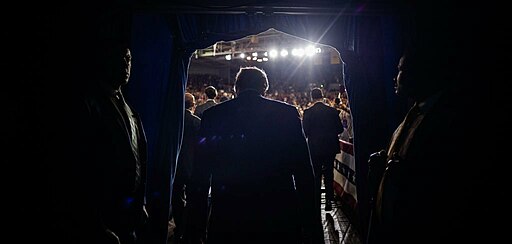 In an October 6 interview with CNN’s Christiane Amanpour, 2016 presidential also-ran Hillary Clinton doubled down on her critique of the voters who subsequently rejected her in favor of Donald Trump.
In an October 6 interview with CNN’s Christiane Amanpour, 2016 presidential also-ran Hillary Clinton doubled down on her critique of the voters who subsequently rejected her in favor of Donald Trump.
Back then, half of them were “deplorables” — “racist, sexist, homophobic, xenophobic, Islamophobic” — but the other half were, at least potentially, wise and morally upright enough to vote for her instead of for him.
Now, she suggests that there needs to be a “formal deprogramming of the cult members” — the “MAGA extremists” who remain supportive of Trump as he seeks a 2024 comeback.
Watching the interview, I kept waiting for the camera to pan to a trash can full of empty burn ointment tubes next to Clinton’s chair.
She’s clearly never gotten over the fact that as of 2016 she was the single most hated and distrusted national figure in American politics, so unconvincing as a candidate and backed by such a poorly run campaign that she couldn’t even beat a notorious con artist, known by all as a p***y-grabbing philanderer and nearing the end of his run as a B-list reality TV celebrity.
It has to be someone else’s fault. On any given day the blame may fall on THOSE DEPLORABLES, or THEM RUSSIANS, or someone else but must never, ever, ever fall on Hillary Clinton.
That schtick got old and tired years ago. Her party would be better off if she sat down and shut up instead of continuing to sit down for whiny, self-serving interviews.
Which is not to deny that she has a point. If you’re a Republican who’s still with Trump after all this time, you clearly either really, really, really like losing — his “leadership” of the GOP cost it the 2018 midterms, the 2020 presidential election, and the prospective 2022 “red wave,” and may very well lose it the 2024 presidential election — or you’re a Kool-Aid-chugging devotee trapped in a single individual’s cult of personality.
But “formal deprogramming” does sound awfully authoritarian and dystopian, especially if we ignore her elaboration on the process, the simplistic “we have to defeat him.”
As political cults go, MAGA differs from most only in that it’s so centered on Trump’s person. That’s problematic (plug the term “fuhrerprinzip” into any search engine for more information), but it’s also a self-solving problem. While it will take time for “Trumpism” to disappear completely, its dissolution begins with his departure from the political stage.
American political cultism usually breaks down by party — remember “Vote Blue, No Matter Who?” — or clusters around the party best able to attractively package the world’s perennial champion death cult, nationalism, for the moment.
So long as we abide politics, we suffer cults. I’m not sure the cult of Trump is really worse than the others.
Thomas L. Knapp (Twitter: @thomaslknapp) is director and senior news analyst at the William Lloyd Garrison Center for Libertarian Advocacy Journalism (thegarrisoncenter.org). He lives and works in north central Florida.
PUBLICATION/CITATION HISTORY


